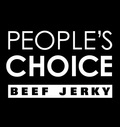A fat fast is a dieting technique that focuses on a calorie deficit where 80-90% of your calories come from only fat. This helps you to either break through a weight loss plateau or get into a state of ketosis quicker after you've just started the keto diet or if you've had a cheat day.
In its simplest form, it's an accelerated version of the keto diet that claims to help shed pounds and burn fat stores.
What is a fat fast?
A fat fast is simply a high-fat, low-calorie short term diet plan that lasts around 2-5 days. It is recommended that during your fat fast you should consume 1,000-1,200 calories a day, 80-90% of which should come from fat. (1)
During this time, your body is forced into a state of ketosis at an accelerated pace because you are consuming so little carbohydrates and so much fat while also being in a caloric restriction. (2)
What can you eat and not eat on a fat fast?
At the core of the fat fast, you'll consume a lot of fat. The goal is to eat 4 to 5 small meals ranging from 200-250 calories a day.
Foods to eat:
- Nuts and nut butters
- Oils (Coconut, Mayo, Olive, Avocado)
- Avocados
- Full-fat dairy including butters, cream cheese, and high-fat cheese
- Full-fat dairy alternatives such as coconut milk or cream
- Small amounts of high-fat proteins like bacon
- Whole eggs and egg yolks
- Leafy greens cooked in or with fat
Foods to Avoid:
- Cereals, breads and grains
- Legumes
- Most fruit and vegetables
- Low-fat dairy products
- Cakes and sugar
- Processed food
- Sweet drinks and alcohol
It's important to note that while typically high-protein meats such as chicken, meat and fish are acceptable to consume in moderate amounts on a regular ketogenic diet, these are not included during a fat fast.
The reason is that these foods can push your protein intake up too high, which will kick you out of a fat burning state. It's vital to focus on strictly high fat. (3)
What are the benefits of a fat fast?
Research shows that one of the biggest advantages of being on a fat fast is that it depletes the body of carbohydrates by burning fat for fuel at a much faster pace. As a result, you can lose weight and jump into ketosis faster.
A fat fast is also designed to create a calorie deficit, which also plays a role in one losing weight on this diet. By combining a low calorie diet while strictly eating fats, your body may enter ketosis and begin to burn fat.

What are the disadvantages of a fat fast?
This is an extreme version of a diet that omits other healthy foods like proteins and complex carbohydrates the body needs to support muscle mass and energy. Consuming very little protein can result in unhealthy muscle loss.
The fat fast also consists of very little or no vegetables, fiber, and fruit. Within these food groups contain essential micronutrients and antioxidants the body needs. You also miss out on important vitamins and minerals and can suffer from malnutrition, nausea, dizziness, diarrhea, and fatigue. (4)
While people also tend to lose weight on a fat fast, it's typically temporary and only short-term because you lose water weight when your body is depleted of carbs.
Bottom Line
While a fat fast can lead to quick weight loss and jumpstart your body into burning fat, the extreme calorie deficit and food restrictions are not healthy, sustainable, or safe for long term.


